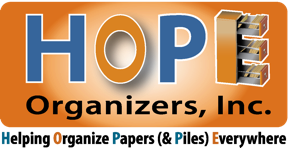Keeping medicines organized is essential for health. The importance of
Here are 10 tips for organizing medicines:
1. Even though it’s called a medicine cabinet, that cabinet in the bathroom is the last place you should store medicines because of the high temperatures and humidity that could “cook” the capsules or tablets and could alter the chemistry. The bathroom door is closed most of the time, and the steam coming from the shower does not help in keeping your medicines dry and cool. Store your medicines safely in a closet, kitchen cabinet, storage box, or on a shelf. Ask your pharmacist for specific storage instructions, too.
2. When flying, do not check your medicines in your suitcase. Rather, take them on the plane in your carry-ons. Also, it is highly recommended that your prescription medicines be kept in their original containers. The security personnel will know that you are carrying medicines prescribed by your doctor and not illegal drugs. If you want them to be in your medicine or pill organizers, wait until you get to your destination to arrange them.
3. Do not have medicines delivered to your home if they are going to sit on your porch for the whole day due to heat or cold exposure. Either deliver them to your office or to a mail center that can hold your mail.
4. Use a black marker or label maker and put the name of the medicine in large letters on the top of the cap so the name is easily readable by someone whose vision is fading. Do not use medical jargon either. It might cause confusion. Make sure that the labels are easy to understand.
5. Keep a list of all medications, times they need to be taken, dosage, and the reason why they are being taken, including over-the-counter medicines. This list should include prescriptions as well as herbal supplements. Include information about your medication allergies and intolerances to certain medicines. It would also help you to manage multiple medicines. Create a chart via Excel Spreadsheet or Google Sheet. If there are medicines that need to be refrigerated, make another column for this information, too. Keep a copy on your computer and mobile phone. Print copies as needed, and review this list with your doctor periodically.
6. Keep a log chart or journal of the medicines you take, the dosage, and times of day. This serves two purposes. It helps you remember that you took your medicine, and it allows the doctors to review for any possible interactions or mixed-up dosages. It will also give you an idea of the cause and effect. Monitoring is the key to successfully managing your health condition, especially if you have diabetes or another serious disease.
7. Be sure to check the expiration dates; they vary for each product. Do this regularly, especially for opened products. Proper storage is very important in maintaining the usable shelf life of your medicines.
8. Keep all your medications together in one place and schedule when you take them with something else that you do as a routine, e.g. brush your teeth or eat breakfast. Set a recurring alarm on your phone if you need a reminder. Have a plan for putting your medicines in your pill containers or organizers, too, like every first Monday of the week.
9. Use the pill organizer containers that have compartments for the 7 days of the week to hold the medicines you need to take on the appropriate days. These can be very helpful when traveling, too. If you are not sure what to choose, ask for recommendations from your doctor or pharmacist. They will be able to help you get the pill organizer that will best meet your needs. You have to consider that you need large compartments so that your pills will fit properly. Most pill organizers have see-through lids. You can tell immediately if you have missed a medicine. Ensure that you know what to do if this happens.
10. Use medication apps to help you manage your prescription medicines better.
Here are some of the medication apps:
- Care4today
- CareZone
- Caring Village
- Dosecast
- Mango Health
- MedHelper
- Medisafe Medication Reminder
- MyMedSchedule
- PillPack
- RxmindMe
These apps will improve your adherence to taking your medications or reminding your loved ones to do so. If you are taking care of elderly people, you may have to set their cell phones up with these apps and train them how to use them. You are not alone if you keep forgetting to take your medications or are not storing them properly. It may be more helpful if you can combine taking your medications with daily routines. Put a post-it note on your medicine bottle or packaging and place this beside your toothbrush. Remember to ask for assistance from a relative, friend, caregiver, or professional organizer if you need help organizing your medicines.
